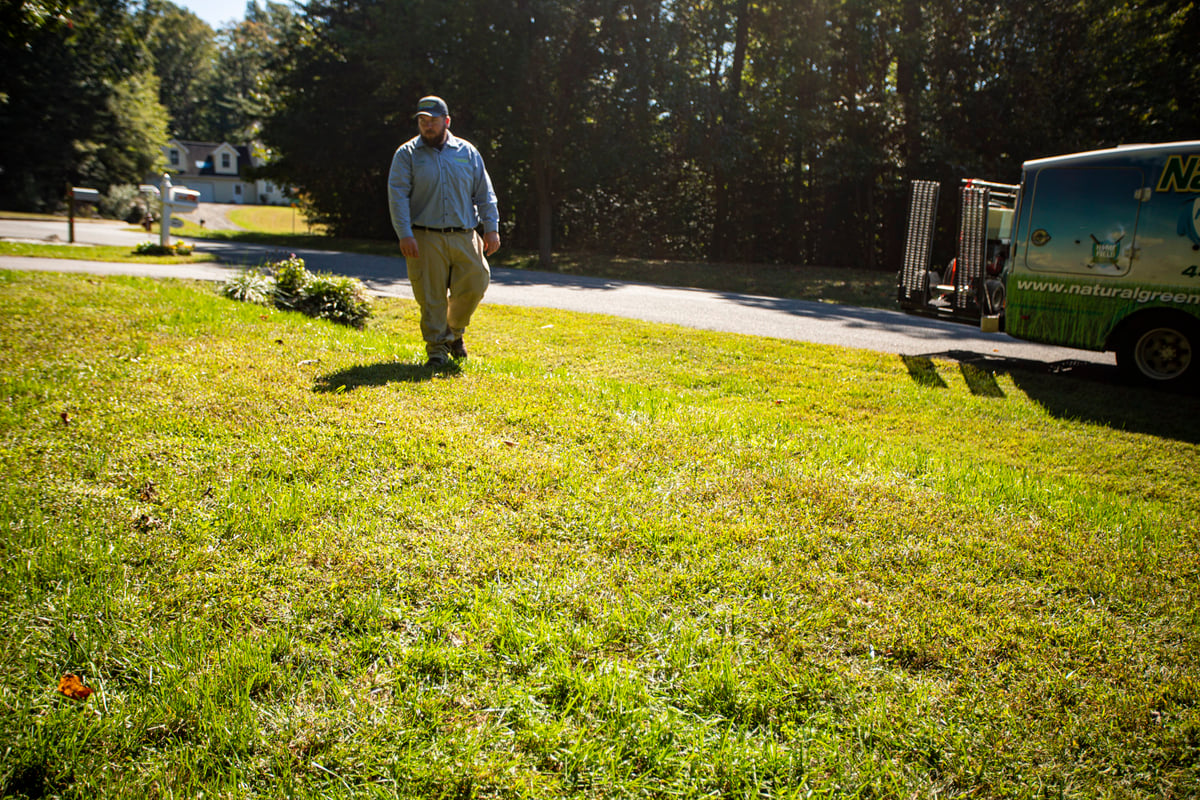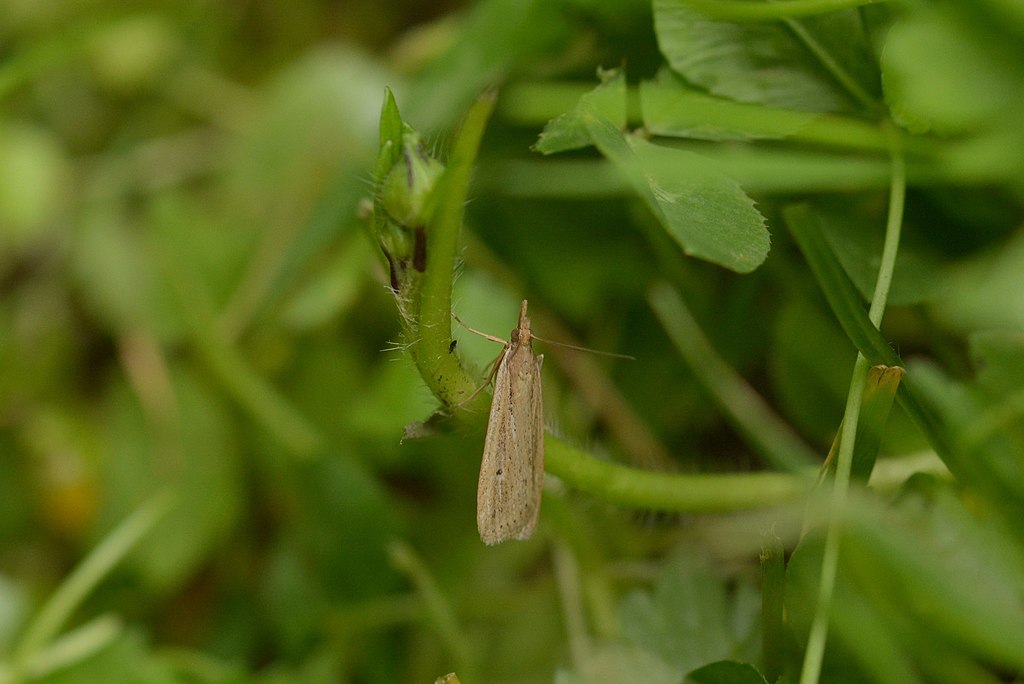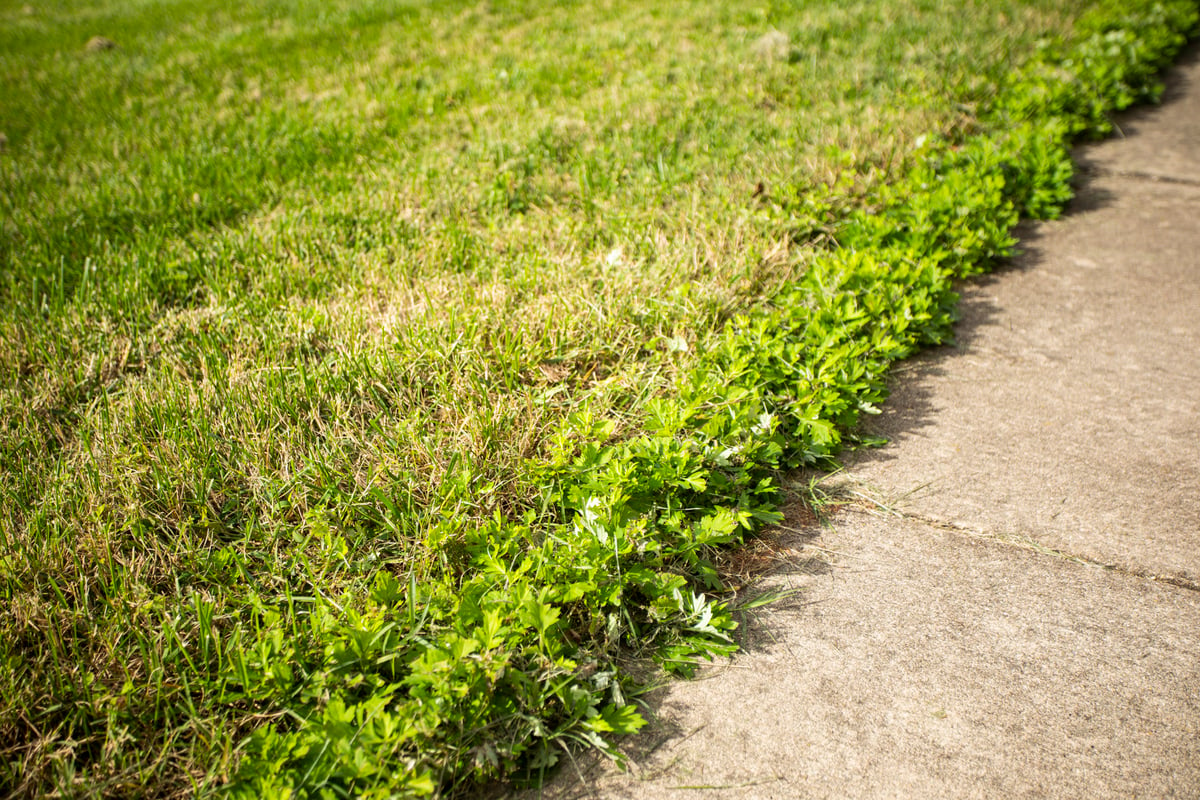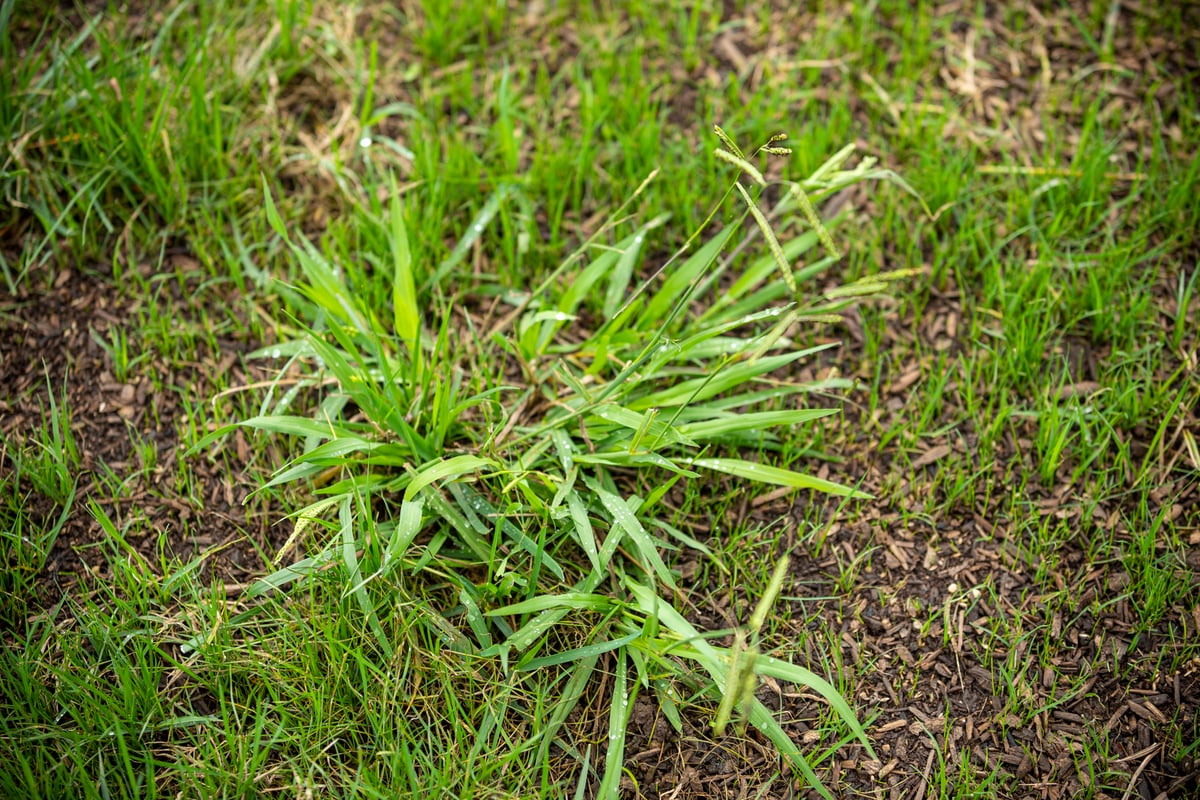How To Identify and Control Sod Webworms in Your Maryland Lawn
As you’re walking across your lawn, you’d like to enjoy the soft, green grass, as well as maybe a cool, light breeze and some sunshine.
What you don’t want is small, gray-ish colored moths flying into your face. That kind of ruins the nice day.
And that’s like in late summer when you have a sod webworm infestation in your lawn. In fact, it can be one of the worst summer lawn pests in Central and Southern Maryland, responsible for some extensive damage each year.
So you can keep your eye out for these pests, let’s learn how to identify sod webworms and, more importantly, all about sod webworm control in Maryland.
Knowing How To Get Rid Of Sod Webworms Starts With Some Pest Education
No one likes bugs in their lawn. No one.
Use This Tool to Compare Your Local Lawn Care Companies
The good news is you don’t have to deal with them for long. Learning a bit about how to identify sod webworms and what kills sod webworms can give you the knowledge to catch these pests early and get your problem resolved before they cause too much damage.
How To Identify Sod Webworms
You might notice quite a few things before it comes to actually identifying sod webworms.
The first time you might realize you have a problem is as you’re walking through your lawn and small tan moths fly in your face.
The lifestyle of these pests might help you better understand what they go through.
 Sod webworm larvae emerge from their eggs and start feeding on your grass stems after about 10 days. They feed through late September. Then they overwinter and feed one more before pupating from May until early June. The adult moths emerge 10 to 14 days later.
Sod webworm larvae emerge from their eggs and start feeding on your grass stems after about 10 days. They feed through late September. Then they overwinter and feed one more before pupating from May until early June. The adult moths emerge 10 to 14 days later.
While the adult form of the insect is harmless, the larvae can cause the most damage to your lawn. That’s why sod webworm control in Maryland is so important.
What Do Sod Webworms Look Like?
As you look for these pest problems in your lawn, you might notice the web-lined tunnels they build first.
But when it comes time to learn how to identify sod webworms, you want to know what they look like.
 Sod webworm bodies themselves range in color from light green to light brown, and on top of their bodies they have rows of spots.
Sod webworm bodies themselves range in color from light green to light brown, and on top of their bodies they have rows of spots.
As adults, sod webworms become moths. They are white or tan with snout-like projections emerging from their heads and wings that wrap around their bodies.
What Does Sod Webworm Damage Look Like?
If you start to see small brown spots on your lawn, you could suspect a number of problems – from drought to disease.
But as your weather gets warmer in mid- to late summer and drier, you might see these spots quickly grow and merge.
 This is when you should start to suspect sod webworm damage. This is one of the tricks of how to identify sod webworms because patches caused by sod webworms will cause the most damage during a drought. So, naturally, you might suspect drought alone is causing the issue.
This is when you should start to suspect sod webworm damage. This is one of the tricks of how to identify sod webworms because patches caused by sod webworms will cause the most damage during a drought. So, naturally, you might suspect drought alone is causing the issue.
What you need to do is get down and look a little closer. If you inspect an area of your lawn where you see these patches, you might notice distinctive webs or web-lined tunnels along the edges. If you spread the grass blades apart, you might even see pellets that signify webworm excrement. If you can pull the dead grass up, you might see the grayish larvae beneath.
What Kind Of Lawns Do Sod Webworms Like?
Normally, sod webworms don’t go after established, healthy lawns that have great cultural practices.
They like to infest lawns that are in a state of decline with thinning or dead patches.
 We’ve also seen them in new neighborhoods where soil microbial activity is off from all of the building activity.
We’ve also seen them in new neighborhoods where soil microbial activity is off from all of the building activity.
Tips for Sod Webworm Control In Maryland
So, you can see that sod webworms can be nasty and cause some lawn destruction.
When you find them in your lawn, putting down a curative insecticide can knock them down pretty quickly. This is usually an extra service from a lawn care professional.
 On top of this, fertilization and aeration and overseeding services can help improve your soil and lawn health, which can help with sod webworm control in Maryland, as well as be a great preventive strategy.
On top of this, fertilization and aeration and overseeding services can help improve your soil and lawn health, which can help with sod webworm control in Maryland, as well as be a great preventive strategy.
Trust Natural Green For Sod Webworm Control In Maryland
Sod webworms are definitely a summer pest in Maryland that you want to stay ahead of. Keeping a great green lawn means tackling this bug and making sure it stays away.
Natural Green would love to help you with sod webworm control in Maryland. Our experts are trained at spotting this bug and getting rid of it before it does too much damage to your lawn.
Ready to stop the sod webworms madness in your Central and Southern Maryland lawn? Request a free quote today. We’ll review our options together so you can make the best choice for you. Then you can sit back and enjoy your yard--worry free!
Image Source: sod webworm
As you’re walking across your lawn, you’d like to enjoy the soft, green grass, as well as maybe a cool, light breeze and some sunshine.
What you don’t want is small, gray-ish colored moths flying into your face. That kind of ruins the nice day.
And that’s like in late summer when you have a sod webworm infestation in your lawn. In fact, it can be one of the worst summer lawn pests in Central and Southern Maryland, responsible for some extensive damage each year.
So you can keep your eye out for these pests, let’s learn how to identify sod webworms and, more importantly, all about sod webworm control in Maryland.
Knowing How To Get Rid Of Sod Webworms Starts With Some Pest Education
No one likes bugs in their lawn. No one.
Use This Tool to Compare Your Local Lawn Care Companies
The good news is you don’t have to deal with them for long. Learning a bit about how to identify sod webworms and what kills sod webworms can give you the knowledge to catch these pests early and get your problem resolved before they cause too much damage.
How To Identify Sod Webworms
You might notice quite a few things before it comes to actually identifying sod webworms.
The first time you might realize you have a problem is as you’re walking through your lawn and small tan moths fly in your face.
The lifestyle of these pests might help you better understand what they go through.
 Sod webworm larvae emerge from their eggs and start feeding on your grass stems after about 10 days. They feed through late September. Then they overwinter and feed one more before pupating from May until early June. The adult moths emerge 10 to 14 days later.
Sod webworm larvae emerge from their eggs and start feeding on your grass stems after about 10 days. They feed through late September. Then they overwinter and feed one more before pupating from May until early June. The adult moths emerge 10 to 14 days later.
While the adult form of the insect is harmless, the larvae can cause the most damage to your lawn. That’s why sod webworm control in Maryland is so important.
What Do Sod Webworms Look Like?
As you look for these pest problems in your lawn, you might notice the web-lined tunnels they build first.
But when it comes time to learn how to identify sod webworms, you want to know what they look like.
 Sod webworm bodies themselves range in color from light green to light brown, and on top of their bodies they have rows of spots.
Sod webworm bodies themselves range in color from light green to light brown, and on top of their bodies they have rows of spots.
As adults, sod webworms become moths. They are white or tan with snout-like projections emerging from their heads and wings that wrap around their bodies.
What Does Sod Webworm Damage Look Like?
If you start to see small brown spots on your lawn, you could suspect a number of problems – from drought to disease.
But as your weather gets warmer in mid- to late summer and drier, you might see these spots quickly grow and merge.
 This is when you should start to suspect sod webworm damage. This is one of the tricks of how to identify sod webworms because patches caused by sod webworms will cause the most damage during a drought. So, naturally, you might suspect drought alone is causing the issue.
This is when you should start to suspect sod webworm damage. This is one of the tricks of how to identify sod webworms because patches caused by sod webworms will cause the most damage during a drought. So, naturally, you might suspect drought alone is causing the issue.
What you need to do is get down and look a little closer. If you inspect an area of your lawn where you see these patches, you might notice distinctive webs or web-lined tunnels along the edges. If you spread the grass blades apart, you might even see pellets that signify webworm excrement. If you can pull the dead grass up, you might see the grayish larvae beneath.
What Kind Of Lawns Do Sod Webworms Like?
Normally, sod webworms don’t go after established, healthy lawns that have great cultural practices.
They like to infest lawns that are in a state of decline with thinning or dead patches.
 We’ve also seen them in new neighborhoods where soil microbial activity is off from all of the building activity.
We’ve also seen them in new neighborhoods where soil microbial activity is off from all of the building activity.
Tips for Sod Webworm Control In Maryland
So, you can see that sod webworms can be nasty and cause some lawn destruction.
When you find them in your lawn, putting down a curative insecticide can knock them down pretty quickly. This is usually an extra service from a lawn care professional.
 On top of this, fertilization and aeration and overseeding services can help improve your soil and lawn health, which can help with sod webworm control in Maryland, as well as be a great preventive strategy.
On top of this, fertilization and aeration and overseeding services can help improve your soil and lawn health, which can help with sod webworm control in Maryland, as well as be a great preventive strategy.
Trust Natural Green For Sod Webworm Control In Maryland
Sod webworms are definitely a summer pest in Maryland that you want to stay ahead of. Keeping a great green lawn means tackling this bug and making sure it stays away.
Natural Green would love to help you with sod webworm control in Maryland. Our experts are trained at spotting this bug and getting rid of it before it does too much damage to your lawn.
Ready to stop the sod webworms madness in your Central and Southern Maryland lawn? Request a free quote today. We’ll review our options together so you can make the best choice for you. Then you can sit back and enjoy your yard--worry free!
Image Source: sod webworm
Share This
Topics: Lawn Care


